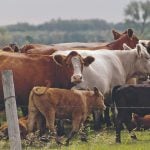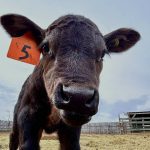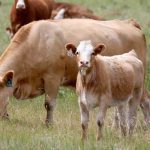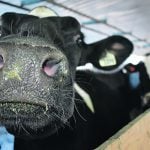Tag Archives cow-calf

Cow-calf returns improve dramatically; herd expansion limited

Calf hormone implants can give environmental, financial wins
Bigger calves at weaning can cut emissions intensity and land use intensity and put more money in the pocket of cow-calf farmers.

Putting genomics for replacement heifer selection to the test
Extension specialist shares details of genomics study on commercial beef herds at Ag in Motion 2025

Tighter antibiotic rules changed little for beef sector: research
Federal regulations changed the way producers procured antimicrobial drugs, but did little to change their already low use on Canadian beef farms, says study

Be smart when managing replacement heifers
The Cost of Production Network offers numbers that beef producers can use to improve their heifer management practices

Beef farmers may be missing out on better forage genetics
New and improved alfalfa and grass varieties are out there, but not every livestock producer in Western Canada is fighting to grow them

New program focuses on data literacy for cow-calf producers
Case studies and mentoring will help give farm data decision-making power




